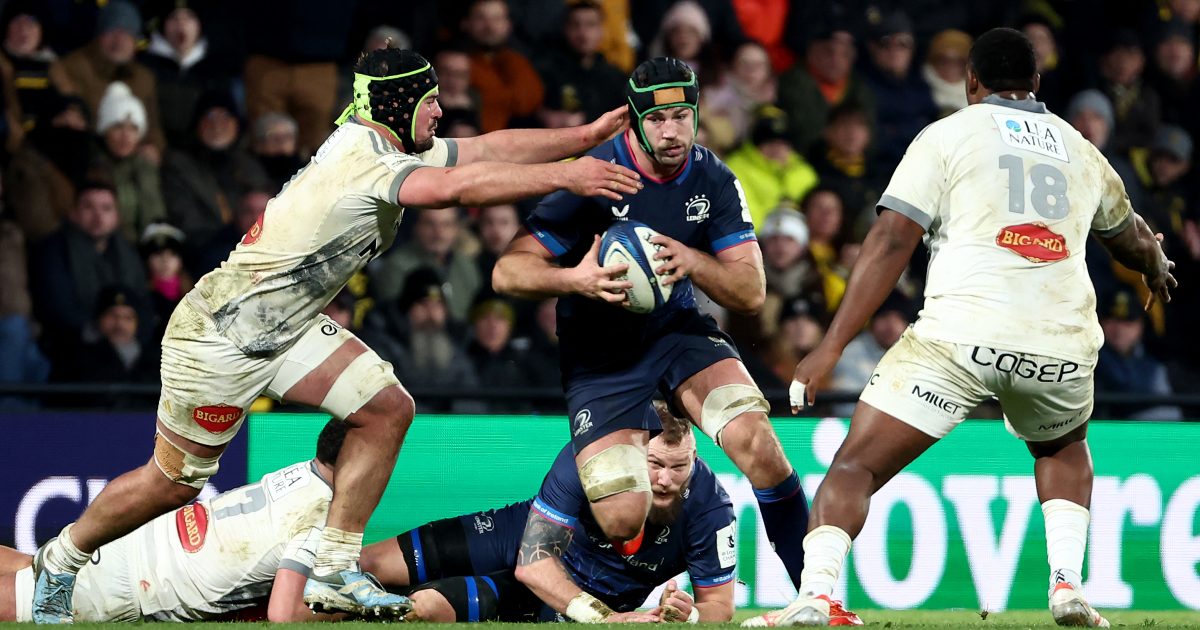Champions Cup : la précieuse victoire "moche" du Leinster

« Qu’importe le flacon, pourvu qu’on ait l’ivresse » dit le proverbe. Pour le Leinster, c’est plutôt « qu’importe la façon, pourvu qu’on ait l’success ».
Avec cette nouvelle victoire 14-16 contre La Rochelle dimanche 12 janvier pour le compte de la 3e journée de Champions Cup, la province irlandaise en est à son troisième succès de suite contre les Maritimes.
Sur six rencontres en quatre ans, les deux équipes ont chacune remporté trois victoires, parfois de façon très serrée comme en mai 2023 avec le sacre de La Rochelle à Dublin sur le score de 27 à 26.
Même si la dernière victoire en date n’a pas autant de saveur qu’une phase finale, les Irlandais ont bataillé très dur pour l’avoir face à des Rochelais dans l’avancée dans le premier et le dernier quart temps du match.
Le troisième ligne du Leinster Caelan Doris a reconnu que la prestation de l’équipe irlandaise lors de la victoire contre La Rochelle était « loin d’être parfaite », mais a estimé aussi qu’« il faut savoir gagner moche » pour aller loin dans la compétition.
« C’était loin d’être parfait, mais je pense que l’intensité tout au long du match a été la plus grande satisfaction, avec la victoire évidemment », a souligné le capitaine des Irlandais, auteur de 27 plaquages, devant les 17 de Josh van der Flier.
Ce résultat permet au Leinster d’avoir son destin en main pour la première place, ce qui les assure d’avoir l’avantage du terrain au moins en huitièmes et en quarts de finale.
« Il y a plein de choses à tirer de ce match », a complété son entraîneur, Leo Cullen. « Nous progressons dans la bonne direction. Mais il faut désormais passer à autre chose très vite », avec la réception de Bath lors de la dernière journée le week-end prochain, a-t-il précisé.

Vous souhaitez être parmi les premiers à vous procurer des billets pour la Coupe du Monde de Rugby 2027 en Australie ? Inscrivez-vous ici.
























